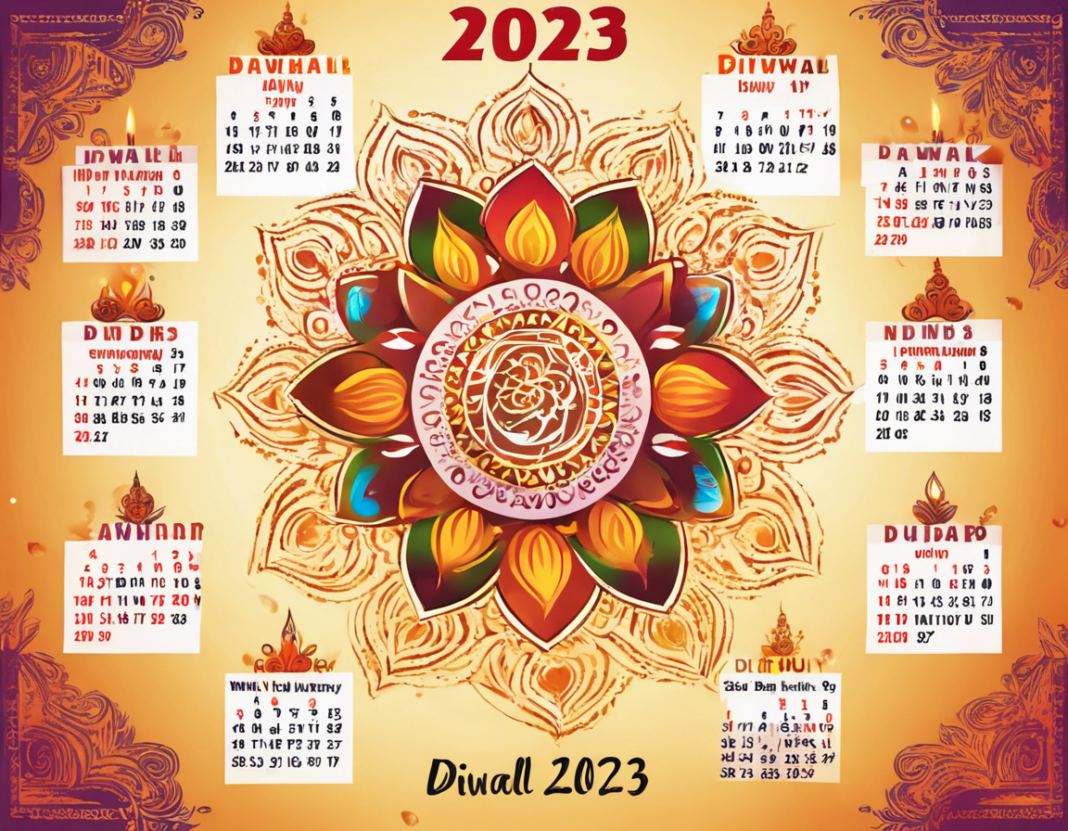Diwali 2023: A Comprehensive Guide
Diwali, also known as Deepavali, is one of the most significant festivals in India. It is a festival of lights, happiness, and togetherness, celebrated by millions of people across the country. In 2023, Diwali is set to be observed on Thursday, 19th October in accordance with the Hindu calendar. The festival signifies the triumph of light over darkness and good over evil. Homes and streets are adorned with colorful lights, candles, and diyas, creating a vibrant and festive atmosphere.
Significance of Diwali:
Diwali holds immense cultural and religious significance for different communities in India. For Hindus, it commemorates the return of Lord Rama to Ayodhya after 14 years of exile and his victory over the demon king Ravana. In Sikhism, Diwali marks the release of Guru Hargobind Ji from imprisonment. Jains celebrate Diwali as the day Lord Mahavir attained Nirvana. The festival is also associated with Lakshmi, the goddess of wealth and prosperity, and people perform rituals to invite her blessings into their homes.
Preparations for Diwali:
-
Cleaning and Decoration: Days before Diwali, households are cleaned thoroughly, symbolizing the removal of negativity and welcoming positive energies. Rangoli, colorful patterns made of rice flour or colored powders, are drawn at the entrances to invite prosperity.
-
Shopping: It is a tradition to buy new clothes, jewelry, gifts, and sweets during Diwali. Markets bustle with activity as people shop for decorations and festive items.
-
Diwali Sweets: The festival is incomplete without indulging in traditional sweets like ladoos, barfis, and jalebis. Families also prepare savory snacks to enjoy during the celebrations.
Diwali Rituals and Traditions:
-
Lakshmi Puja: On the main day of Diwali, families gather for Lakshmi Puja, offering prayers to Goddess Lakshmi for wealth and prosperity. The puja involves lighting diyas, incense, and reciting hymns.
-
Crackers and Fireworks: Lighting firecrackers is a common tradition during Diwali. However, in recent years, there has been a growing emphasis on celebrating a pollution-free Diwali, encouraging eco-friendly alternatives.
-
Gift Giving: Exchanging gifts and sweets is customary during Diwali as a gesture of love and goodwill. It strengthens relationships and fosters a sense of camaraderie.
Celebrating Diwali Across India:
Each region in India has its unique way of celebrating Diwali, reflecting diverse customs and traditions. In North India, Diwali is marked by Rama Leela performances and grand fireworks displays. In West India, people worship Goddess Kali and celebrate the victory of Lord Krishna over the demon Narakasura. South India witnesses the lighting of oil lamps and display of colorful kolams (rangoli).
Eco-Friendly Diwali Practices:
In recent times, there has been a growing awareness about the environmental impact of traditional Diwali celebrations. To ensure a more sustainable festival, here are some eco-friendly practices to consider:
-
Opt for Diyas and Candles: Use traditional earthen diyas or beeswax candles instead of electric lights or plastic decorations.
-
Avoid Plastic and Chemical-Based Firecrackers: Choose eco-friendly firecrackers or opt for noiseless celebrations to minimize air and noise pollution.
-
Sustainable Gifting: Select eco-friendly gifts such as plants, organic products, or handmade items to promote sustainability and reduce waste.
FAQs:
- What is the story behind Diwali?
-
Diwali marks several significant events from different mythologies, including the return of Lord Rama, the release of Guru Hargobind Ji, and Lord Mahavir’s Nirvana.
-
How long does Diwali last?
-
Diwali is typically celebrated over five days, with the main festival falling on the third day.
-
What are some traditional Diwali foods?
-
Popular Diwali foods include sweets like ladoos, barfis, and jalebis, as well as savory snacks like samosas and kachoris.
-
Why is Lakshmi Puja performed during Diwali?
-
Lakshmi Puja is done to invoke the blessings of Goddess Lakshmi for wealth, prosperity, and good fortune.
-
How can I celebrate an eco-friendly Diwali?
- To celebrate a sustainable Diwali, consider using diyas and candles, opting for eco-friendly firecrackers, and choosing sustainable gifts.
Conclusion:
Diwali is a joyous and vibrant festival that brings people together in a spirit of unity and celebration. As we gear up for the festivities in 2023, let us not only revel in the traditions and rituals but also strive to make eco-conscious choices to protect our environment. May this Diwali illuminate our lives with joy, prosperity, and blessings.

